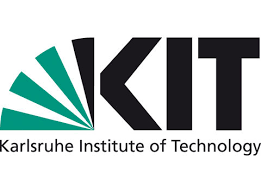Karlsruhe Institute of Technology: Traffic simulation: Ridepooling promotes traffic turnaround
On-demand traffic offers benefit the traffic turnaround. This is what researchers from the Karlsruhe Institute of Technology (KIT) found in an elaborate traffic simulation. For over two years you have been investigating the effects of the largest electric ridepooling service in Europe operated by MOIA on traffic in Hamburg. The study with a specially developed simulation tool provides, for the first time, scientifically independent findings for the provider MOIA, transport policy and planning. According to this, ride pooling can help to reduce car traffic in the city. This effect increases when it becomes less attractive to use your own car in the city.
“Our simulations based on surveys and many other data show that the traffic turnaround will only be possible if attractive alternative offers to private cars are created and additional regulations for motorized private transport are introduced,” says Dr. Martin Kagerbauer from the Institute for Transport (IfV) at KIT. “With this study, we are providing essential information on which components are needed to advance the traffic transition.”
Over a period of two years, Kagerbauer and his team, together with the Technical University of Munich, researched what effects the ridepooling offers of the service provider MOIA can have on the transport system in Germany’s second largest city. The mobility company of the Volkswagen Group is filling the gap between taxis and public transport with ride pooling. An algorithm ensures that users with a similar destination are transported together in one vehicle. The passengers are transported independently of a timetable or route. Passengers can get on and off flexibly en route. Those who want to ride along can order the vehicle using a mobile phone app, an algorithm then plans and optimizes the route. “Based on the study, we can determine the behavior of people who use ridepooling,
Ridepooling does not harm public transport – it will even benefit
Fears that ride pooling would steal passengers from public transport in the Elbe metropolis were not confirmed, according to the experts. On the contrary: “When new means of transport are added, routes are shifted from the existing means of transport to the new mobility offer, but public transport benefits from ridepooling due to the so-called tour effect and the better accessibility of stops,” says Gabriel Wilkes from IfV. “If, for example, someone drives from home to the cinema and back again, on this two-way tour, often only one is covered with ridepooling, the other almost always with public transport,” says Wilkes, explaining the tour effect. All in all, this results in positive effects for local public transport.
In the traffic turnaround scenario of the simulation with nationwide availability of autonomous ride pooling offers with many vehicles, a well-developed public transport system and simultaneous restrictions for car traffic, car traffic in Hamburg could be reduced by eight percentage points. “The decrease in vehicle kilometers of around 15 million kilometers per week would be considerable. This would make Hamburg mobility more sustainable and green, ”says Kagerbauer.
The traffic simulation with the software tool mobiTopp developed at KIT is unique. “The tool maps the mobility of the entire Hamburg population and all travelers there over the course of a week. All routes to all activities such as work, shopping or leisure are mapped down to the minute and with high spatial resolution, ”explains Kagerbauer. “The novelty of our tool is that, in addition to conventional means of transport, new forms of mobility such as ride pooling, car and bike sharing or e-scooter sharing are also taken into account in detail.”

